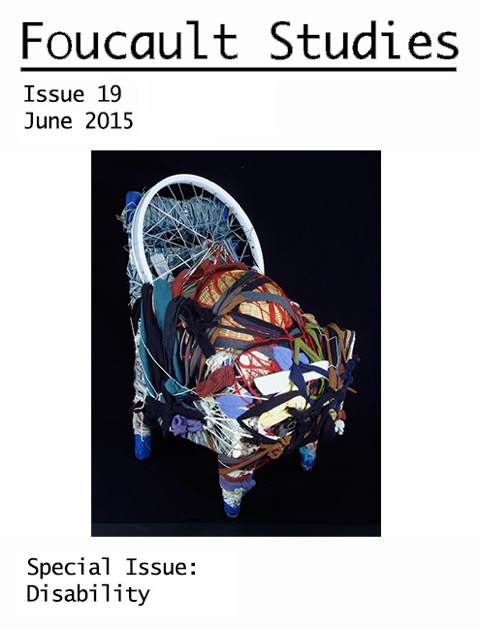This Is What a Historicist and Relativist Feminist Philosophy of Disability Looks Like
DOI:
https://doi.org/10.22439/fs.v0i19.4822Keywords:
genealogy, historicist, relativist, materialism vs. idealism, disability apparatus, subjectivity, experience, minority identityAbstract
With this article, I advance a historicist and relativist feminist philosophy of disability. I argue that Foucault’s insights offer the most astute tools with which to engage in this intellectual enterprise. Genealogy, the technique of investigation that Friedrich Nietzsche famously introduced and that Foucault took up and adapted in his own work, demonstrates that Foucault’s historicist approach has greater explanatory power and transgressive potential for analyses of disability than his critics in disability studies have thus far recognized. I show how a feminist philosophy of disability that employs Foucault’s technique of genealogy avoids ahistorical, teleological, and transcultural assumptions that beleaguer much work in disability studies. The article also situates feminist philosophical work on disability squarely in age-old debates in (Eurocentric) Western philosophy about universalism vs. relativism, materialism vs. idealism, realism vs. nominalism, and freewill vs. determinism, as well as contributes to ongoing discussions in (Western) feminist philosophy and theory about (among other things) essentialism vs. constructivism, identity, race, sexuality, agency, and experience.
Downloads
Published
How to Cite
Issue
Section
License
Authors retain copyright to their work, but assign the right of the first publication to Foucault Studies. The work is subject to a CC BY-NC-ND 4.0 license, but despite these restrictions, authors can take for granted that Foucault Studies will permit articles published in Foucault Studies to be translated or reprinted in another format such as a book providing a full reference is made to Foucault Studies as the original place of publication.



